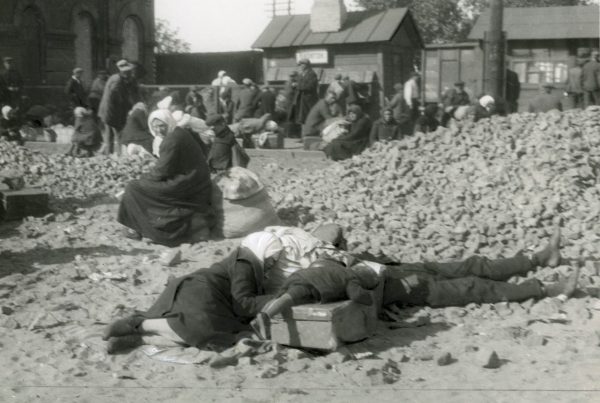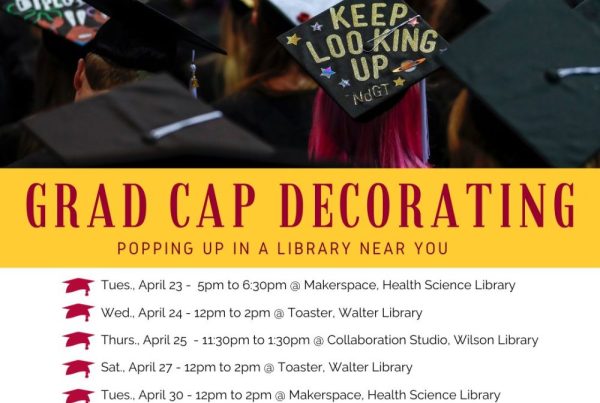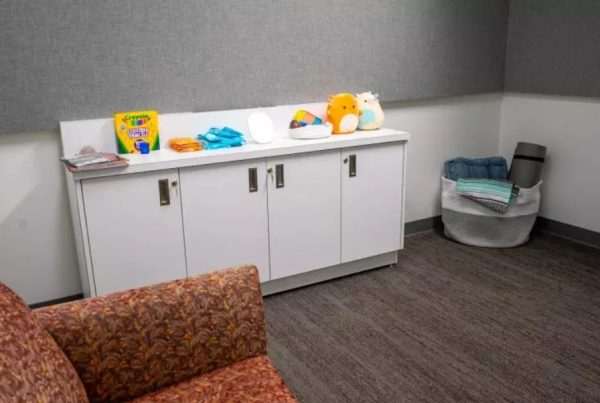It’s National Library Week (April 23-29, 2023). The theme this year is “There’s More to the Story.” At the University of Minnesota Libraries, we have resources, services, and spaces you might not know about. These are available to students, staff, and faculty at the University, while many are available to Minnesotans and scholars around the world.
Today’s blog post features some of the many special collections housed at the University of Minnesota Libraries. From one-of-a-kind artifacts to dynamic exhibits, these collections offer library users an invaluable opportunity to learn about and engage with history firsthand.
Read on for a brief overview of a few noteworthy collections — and stay tuned for another installment tomorrow!
Charles Babbage Institute Archives
Do you dream in code? Are you interested in tech and the history of computing? The Charles Babbage Institute Archives (CBIA) might be the perfect resource for you!
The CBIA collects, preserves and provides access to rich archival collections and rare publications documenting the history of technology. Recent digital exhibits highlight gender inequity in computing and the history of the computing industry in Minnesota.
And here’s a fun video about Minnesota computing history.
Givens Collection of African American Literature
Did you know that the Libraries holds a first-edition copy of the first book published by an African American writer? You can find Phillis Wheatley’s groundbreaking 1773 work, “Poems on Various Subjects Religious and Moral,” in the Archie Givens, Sr. Collection of African American Literature — along with books and archival materials that document the history of Black literature and culture.
In partnership with the Penumbra Theatre Company, the Givens Collection developed Umbra Search African American History. Umbra Search enhances the accessibility of African American history by bringing together materials from libraries and archives across the country. Learn more about Umbra Search’s work and check out its free online search tool.
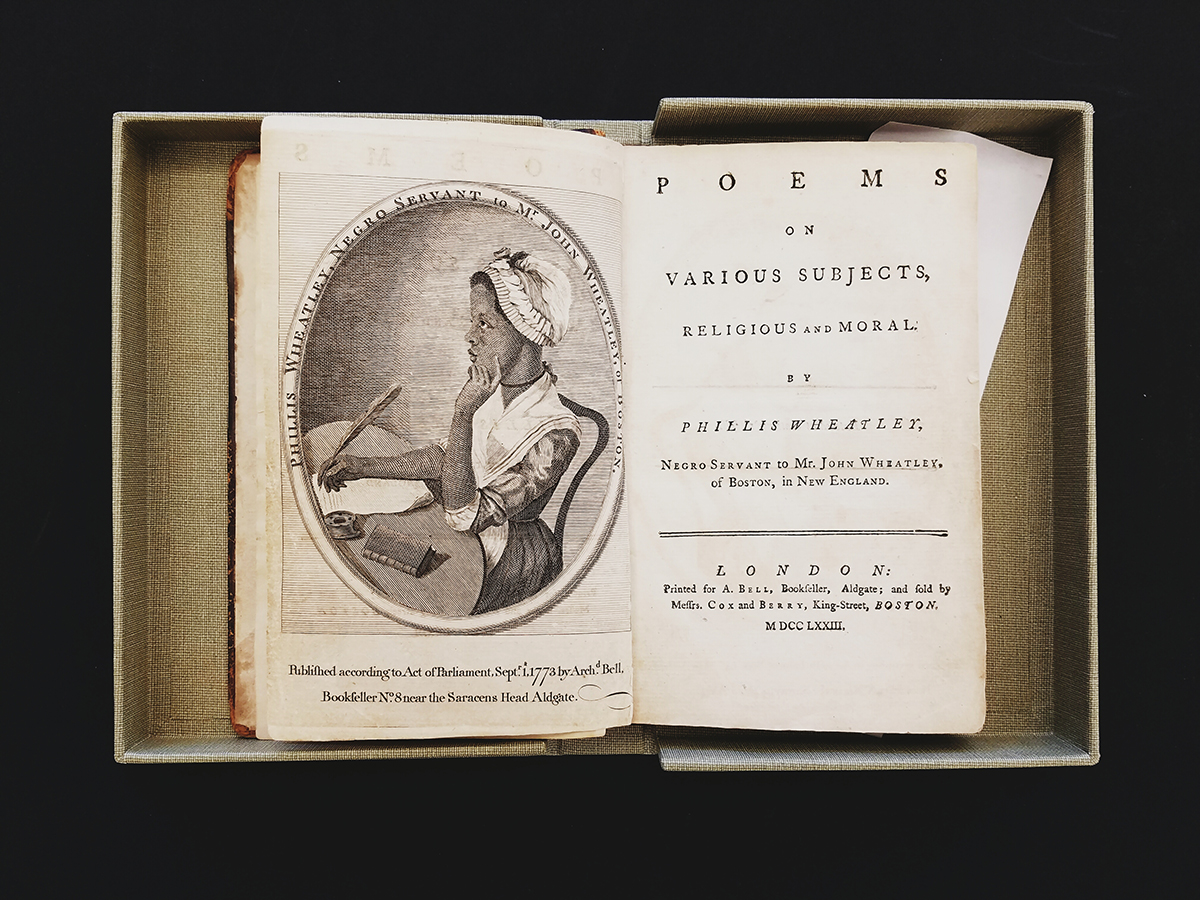
Phillis Wheatley’s 1773 work, “Poems on Various Subjects Religious and Moral,” in its custom-made archival box.
Gorman Rare Art Books and Media Collection
Recently, the Libraries’ Francis V. Gorman Rare Art Books and Media Collection hosted an exhibit and panel discussion featuring the work of photographer and painter Adger Cowans. The sweeping retrospective celebrated Cowans’s formidable career, bringing together old photographs, paintings, rare photography exhibit catalogs and more. This event captured the dynamic spirit of the Gorman Collection, the Libraries’ home for rare art exhibition catalogs, artists’ books, zines, illustrated periodicals, and more dating from the 1500s – present.
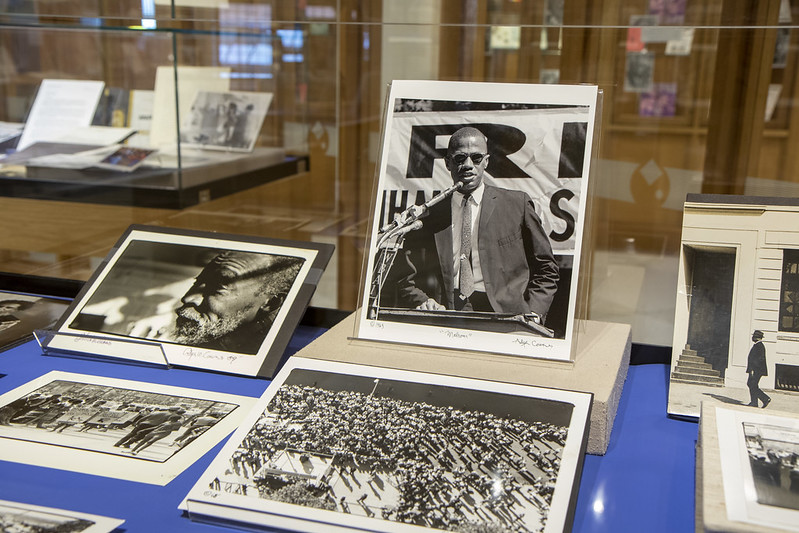
Exhibit case with a selection of photos by Adger Cowans, including a central photo of Malcolm X.
Immigration History Research Center Archives
“What are the forms of invisible labor that keep turning the wheels of global capitalism? … What labor is visible and what is not — and is the latter mostly uncompensated?” These questions drove Grant-in-Aid Award recipient Debjani Chakravarty, Ph.D., while diving into the Immigration History Research Center Archives (IHRCA) last year.
Dr. Chakravarty was in the right place: the IHRCA houses materials documenting a broad range of immigrant and refugee experiences, which it strives to connect to today’s experiences.
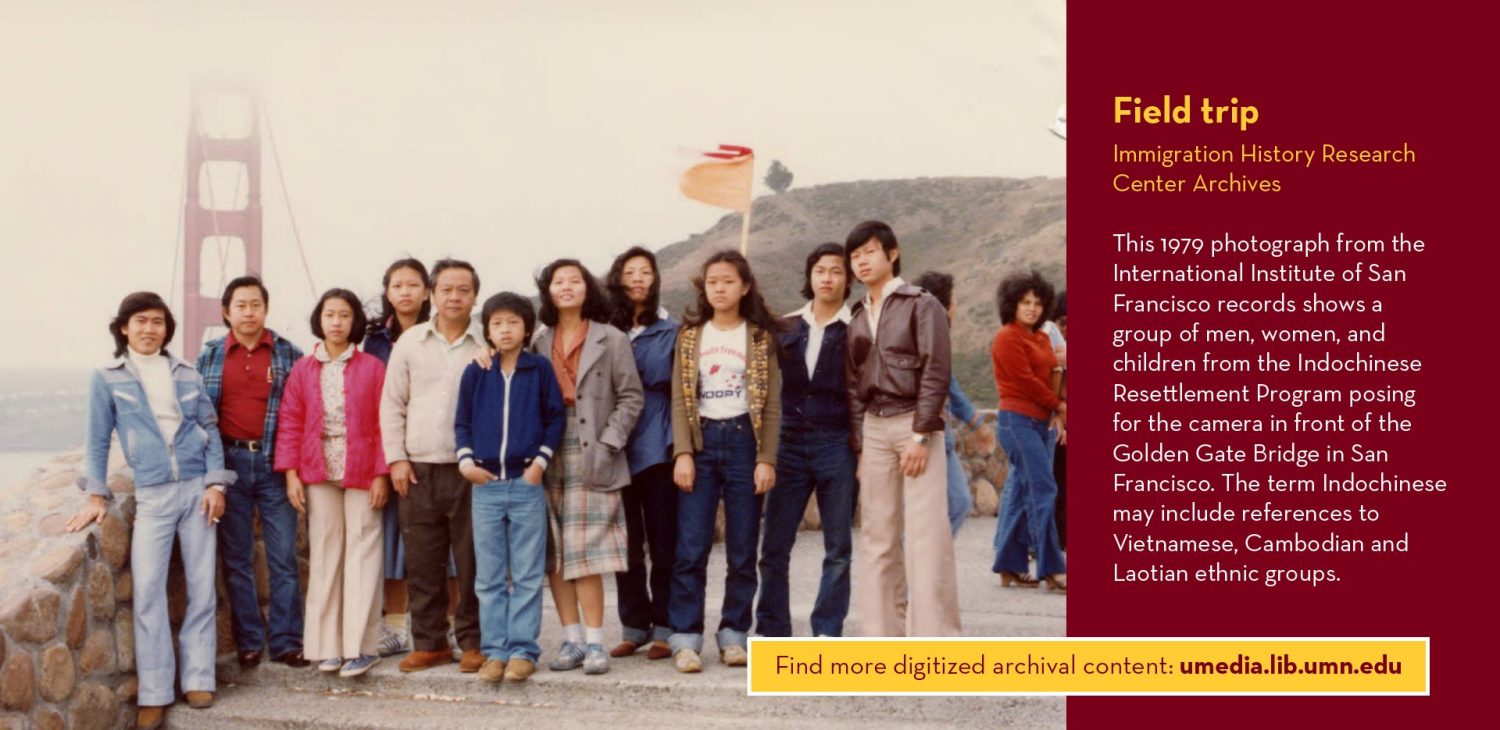
James Ford Bell Library
A map isn’t merely a vessel for geographical data: it’s a story.
At the James Ford Bell Library, history is brought to life. Through rare books, manuscripts, maps, and other materials, the collection documents the history and impact of trade and cultural exchange prior to ca. 1800 CE. A significant portion of these materials can be viewed online through the Libraries’ digital archive, UMedia. The collection also provides ample community engagement opportunities through its regular exhibits and instructional resources.
Kautz Family YMCA Archives
For Ryan Bean, Reference and Outreach Archivist for the Kautz Family YMCA Archives, archival work isn’t merely about reaching into the past. Rather, the archives are a “collaborator and catalyst” to true institutional antiracism work, allowing organizations like the YMCA of the USA to engage in critical conversations about how history might still be influencing modern-day praxis.
The Kautz Family YMCA Archives offer deep insight into the history of the Y. The archives also support active scholarship through fellowships geared towards a range of different communities. Recent exhibits include an exploration of the YMCA’s service to WWI troops and prisoners of war:
The Kerlan Collection of Children’s Literature
You don’t need to be a young reader to marvel over the Kerlan Collection of Children’s Literature — an internationally recognized children’s literature library and archive. The Kerlan holds more than 100,000 children’s books, original manuscripts, correspondence, artworks, galleys, color proofs, and other material for more than 1,700 authors and illustrators. It’s just one collection in the Children’s Literature Research Collections at the Libraries.
Recently, thanks to a generous donation, the Kerlan Collection acquired an original pencil sketch illustration from the children’s book, “The Dinosaurs of Waterhouse Hawkins.” Read more about this and other Kerlan updates on the Kerlan blog.
More about the Kerlan:
Northwest Architectural Archives
Established in 1970, the Northwest Architectural Archives houses the records of architects, engineers, contractors, landscape architects, interior designers, academics, and local professional societies from the Midwest region. Highlights of the archive include the William Gray Purcell papers and, as of 2021, the Thorbeck Papers, containing documents from Dewey Thorbeck, architect and former Director of the Center for Rural Design.
Performing Arts Archives
Tucked in Elmer L. Andersen Library rests a trove of records relating to the history of theater, music, dance, and associated organizations in Minnesota. The Performing Arts Archives includes the most significant companies in each of the major arts fields, including the Minnesota Orchestra archives, records from the Guthrie Theater, and an extensive collection of materials from the Minnesota Dance Theatre (MDT). Can’t make it to Andersen? Check out the Performing Arts Archive’s online Scenery Collection Database.
Hear what others say about the Performing Arts Archives from this 2013 video.
National Library Week, sponsored by the American Library Association, is an annual celebration highlighting the valuable role libraries, librarians, and library workers play in transforming lives and strengthening our communities.
Check back tomorrow for Part II of our deep dive into all things special collections.


